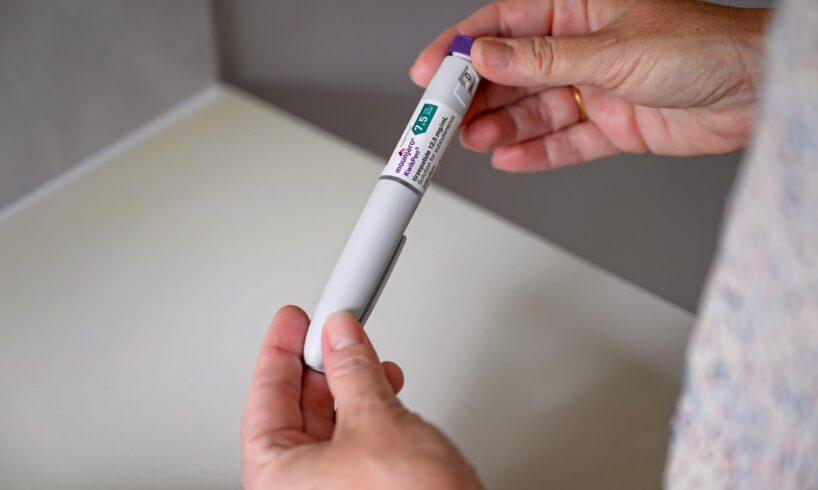
It comes as an increased amount of people turn towards medicine to help them lose weight.
Some of the drugs have recently become available on the NHS but the majority who use them purchase them from online pharmacies and in private because it is not regularly prescribed by the NHS.
Many doctors in Scotland are unable to prescribe them due to the cost with the two main drugs being semaglutide under the brand name WeGovy and tirzepatide under the brand name Mounjaro.
This has led to a black market for the drug and a letter was sent to healthcare professionals to tell them to be cautious of potential illicit drugs and to report anything they may find to Police Scotland.
The force is not running an official investigation at this stage, but it is asking for any information that may help them in the future if the problem continues to grow.
In the letter, seen by The Herald and sent by the Scottish Government’s Chief Pharmaceutical Officer Professor Alison Strath, reveals that a number of NHS weight management programmes have attendees who have told them they are using the drugs without a prescription.
This has caused concern for medical professionals and the Government and the letter is encouraging staff to report the illicit supply anonymously.
It is estimated almost 1.5 million people across the UK are using the GLP-1 injections such as Mounjaro and Wegovy.
Figures also show that 80% of those are buying from online retailers and the fear is that many are paying out cash regularly but not receiving the correct medicine.
A [[Police Scotland]] spokesperson said: “We work closely with a range of partners including Public Health Scotland, the [[Scottish Government]], alcohol and drug partnerships and drug support services to identify current or emerging trends caused by substance use, including the use of unlicenced or unprescribed medications
“We would urge the public to be aware of the risks of misusing any medication and report any concerns about criminality to us so they can be fully investigated.”
A Scottish Government spokesperson said: “Anyone seeking to use weight loss medication should only do so, under medical supervision, and where medicines are prescribed by a registered healthcare professional. The supply of medicines without a prescription is illegal.
“The Chief Pharmaceutical Officer wrote to healthcare professionals on 17 July with updated guidance on how to report the known or suspected illicit supply of obesity medicines after feedback from healthcare professionals working in NHS weight management programmes about people privately sourcing supplies of obesity medicines without a prescription.
“Any healthcare professional with concerns over this should contact their health board’s Fraud Liaison Officer (FLO). They can also report it anonymously to [[Police Scotland]] via Crimestoppers or by asking the FLO to complete a NHS Counter Fraud Services form on their behalf.”
The drugs are taken as an injection once a week and make you feel full so you eat less, and can help people lose up to 20% of their bodyweight.
It was initially a drug licensed to treat Type 2 Diabetes but has since become an option for dealing with the obesity crisis, with two thirds of Scottish adults overweight and 32% living with obesity, which is the highest level recorded in more than 20 years.
Read More
The drugs also have side effects that can have a dangerous effect on patients, including sickness and diarrhoea while more severe cases show a risk of pancreatitis and gastroparesis.
Medical professionals are worried about the impact the illicit drugs are having on the market with Dr Jack Henderson of the Stockbridge Clinic fearing patients are receiving dangerous medicines.
He said: “We’re deeply concerned about people unknowingly purchasing counterfeit medications online.
“Many patients have no idea they’re buying fake products that may contain dangerous substances or incorrect dosages. We have seen patients who thought they were getting legitimate medication but were actually injecting completely unknown and unregulated substances.
“We need much stronger regulation of online suppliers selling these medications. The illegal market has grown exponentially, and even with legitimate NHS access, people continue to turn to cheaper, unregulated sources.
“We urgently need authorities to crack down on these dangerous suppliers before more people are seriously harmed.”





